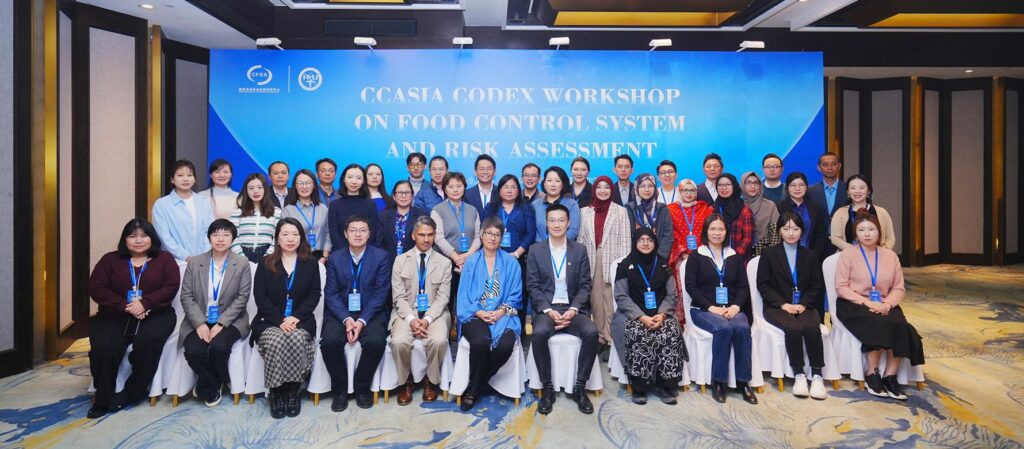CCASIA Codex Workshop in Harbin: Advancing Food Control Systems and Risk Assessment Across Asia-Pacific
The recent CCASIA Codex Workshop, hosted in Harbin, China, marked a pivotal moment for food safety enhancement throughout the Asia-Pacific region. Organized by the Food and Agriculture Organization (FAO), this event convened specialists and delegates from multiple countries to address critical issues surrounding food control systems and risk assessment techniques. The workshop aimed to foster stronger regional cooperation, promote best practices aligned with Codex standards, and tackle emerging challenges in food security. As global concerns over food safety intensify, the insights shared here are poised to influence regulatory frameworks not only within Asia but on an international scale.
Strengthening Food Control Frameworks in Asia-Pacific
Bringing together a diverse group of experts from government agencies, academia, and industry sectors, the Harbin workshop concentrated on refining existing food control mechanisms across Asian nations. Central to discussions was the integration of comprehensive risk assessment into national food safety management systems. Participants underscored the necessity for harmonized regulations that ensure consistent protection of consumers while facilitating cross-border trade.
Interactive sessions highlighted several focal areas including:
- Adoption and enforcement of Codex Alimentarius standards
- Effective communication strategies for conveying risks to consumers
- Capacity enhancement initiatives targeting local regulatory bodies
- Encouraging collaboration between public institutions and private sector stakeholders
- Navigating new challenges such as climate change impacts on food safety
| Workshop Theme | Main Insights Gained |
|---|---|
| Codex Standards Implementation | The critical role of unified guidelines across countries |
| Risk Communication | Building trust through transparent consumer engagement |
| Capacity Building | Tailored training programs enhancing inspector competencies |
Innovative Risk Assessment Methodologies to Elevate Food Safety Practices
During this collaborative forum in Harbin, participants explored cutting-edge approaches designed to enhance predictive capabilities within risk assessment frameworks. Emphasis was placed on leveraging big data analytics alongside machine learning models that can forecast potential contamination events before they occur—thereby reducing incidences of outbreaks similar to recent recalls linked with processed meats or seafood products.
Key strategic points included:
- Real-time surveillance technologies: Utilizing IoT sensors for continuous monitoring along supply chains.
- Evolving educational programs: Equipping regulators and producers with advanced skills necessary for dynamic hazard identification.
- The push toward standardized protocols: strong > Developing globally accepted procedures that streamline inspection processes while maintaining rigorous quality assurance. li >
A detailed overview table presented during sessions outlined prevalent hazards alongside recommended mitigation tactics:
Key Recommendations Driving Regional Food Safety Enhancement Efforts
Workshop participants collectively proposed actionable recommendations aimed at reinforcing regional cooperation around unified food standards—critical both for consumer protection and smoother international commerce.
Among these were calls for:
- < strong>Create dedicated regional task forces focused on tackling specific emerging threats such as antimicrobial resistance or microplastic contamination. strong> li>
- < strong>Cultivate inclusive stakeholder dialogues involving farmers, processors, retailers—and ultimately consumers—to build trust throughout supply chains. strong> li>
- < strong>Pursue investment into research initiatives identifying novel risks posed by evolving agricultural practices or environmental changes. strong> li>
Moreover,the adoption of innovative technologies like blockchain was championed as a transformative tool enabling end-to-end traceability within complex supply networks—ensuring transparency from farm gate through retail shelves.
Integrating robust risk assessment models remains paramount; these frameworks empower authorities not only to detect hazards early but also implement targeted interventions minimizing public health impacts effectively.
Conclusion: Fostering Collaborative Progress in Food Safety Across Asia-Pacific
The CCASIA Codex Workshop held in Harbin has laid down a solid foundation towards elevating food control systems throughout Asia-Pacific nations. By uniting policymakers, technical experts,and industry leaders under one roof,the event catalyzed knowledge exchange essential for harmonizing regulationsand advancing scientific methodologies relatedto risk evaluation.
As global demand growsfor safer,and more transparentfood supplies,the partnerships forged here will be instrumentalin driving innovationand ensuring resilientfood governance structures moving forward.The collective commitment demonstrated signals promising strides toward safeguardingpublic healthwhile supporting sustainable economic growthwithinthe region’s agri-food sectors.
